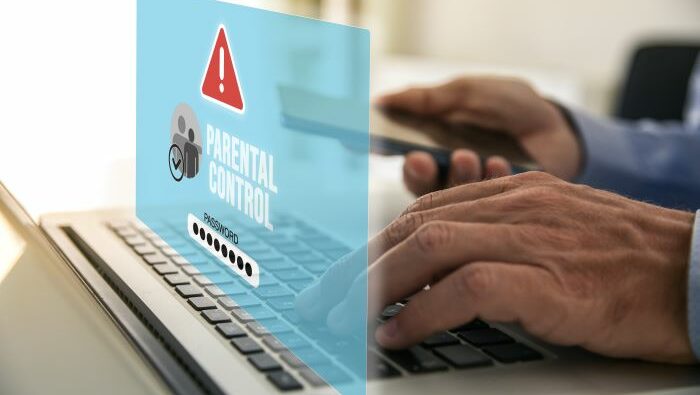Recent rises in the popularity of digital monitoring technologies have seen such technologies become an accepted part of the digital parenting toolkit, helping parents and caregivers to oversee and limit their children’s behaviours online and offline. We take their use as a given. But should we be questioning their efficacy and their long-term impact on children’s digital wellbeing?
In a new paper, Drs Ekaterina Hertog, Professor of AI and Society at the Oxford Internet Institute, University of Oxford, Netta Weinstein of Psychology at the University of Reading, and Jun Zhao, Senior Researcher of Computer Science at the University of Oxford, outline the benefits and risks of digital monitoring technologies for modern families and offers recommendations for policymakers working in this important area of digital policy.
In their blog below, Prof Hertog, Prof Weinstein, and Dr Zhao describe key takeaways from the paper, published by the British Academy as part of their series of discussion papers, ‘What Makes a Good Digital Society’:
Parental control apps in daily life
Many parents are busy juggling the demands of childcare with work commitments and other caring responsibilities. Digital tools that help parents enforce rules around screen time and their children’s online browsing habits, or help parents virtually accompany their child to and from school, promise to bring parents some much-needed peace of mind. ,
For many families, the use of digital monitoring apps is a crucial part of parenting, with 70% of UK parents with children aged 3-17 reporting that they use technology to control their child’s access to online content. (1)
As AI tools are incorporated into these technologies, the information available to parents is expected to increase exponentially. The implications for children’s capacity to self-regulate their own offline and online behaviours, for their well-being, and for their safety are substantial, as are implications for parents’ well-being and the functioning of the family unit.
The benefits of digital monitoring technologies in parenting and childcare
In ‘Data-Driven Parenting: Robust Research and Policy Needed to Ensure that Parental Digital Monitoring Promotes a Good Digital Society’, Hertog, Weinstein and Zhao (2024), we describe the evidenced and potential benefits and pitfalls of parental online controls for children. We highlight that little is actually known about the consequences of relying on monitoring technologies for children’s and their families’ well-being.
We argue that monitoring technologies can be an important tool for childcare that assists parents and carers in safeguarding and guiding their children. Well-designed technologies could ultimately contribute to a digital society that protects children’s safety, encourages better choices, and supports the development of healthy habits that children can carry with them into adulthood.
Offline tracking tools that allow parents to monitor children’s location and intervene for their safety, if necessary, can give parents peace of mind and enable them to find their children quickly if necessary, for example, to give them a lift after a night out.
The pitfalls of digital monitoring technologies in parenting and childcare
Though digital monitoring technologies, used well, can deliver benefits to children and their families, these need to be considered against the possible risks. In our new paper we also highlight the flip side of these increasingly popular technologies that are playing an increasingly prominent role in family life.
Digital monitoring technology can adversely affect parent-child relationships if they lower the quality of family communication, diminish trust felt by children towards their parents, and increase how controlling children perceive their parents’ behaviour to be. (2) Over time, this could cause children to engage in secretive or rebellious behaviours. (3)
Parents who heavily rely on restrictive digital monitoring in a way that closes off children’s opportunities to make choices about their own practices may inadvertently undermine their children’s ability to self-regulate technology use. While babies and young children may benefit from monitoring and restrictions that keep them safe, older children need to learn to make decisions about their time use and the content they pursue. As children make decisions and, inevitably, mistakes, they may learn skills for making thoughtful online decisions later in life. (4)
As it stands, current UK legislation such as the Online Safety Bill, is focused on preventing harm to children but does not recognise the balance of costs to benefits when monitoring or restricting children in order to try to protect them. (5)
Considerations and recommendations for policymakers
We firmly believe that more research is needed to inform what makes for “effective” digital parenting approaches. Policymakers can help parents feel safe without disempowering children by prioritising the following areas of digital wellbeing and government policy:
1) Understanding of how parents’ use of digital monitoring technologies affects children’s safety, well-being, and digital resilience both in the short and in the long-term.
2) A stronger focus on the ways that individual characteristics, family and social contexts influence children’s experiences and reactions.
3) Greater transparency when communicating to both children and parents as to what these technologies actually do.
4) Design of digital monitoring technologies which not only promote children’s safety and top-down controls for parents, but which also consider children’s rights and support their self-regulation.
Furthermore, for these considerations and recommendations to be effective, we suggest that two practices need to be at the basis of policy-related activities in this space. First, we need to include children in research and policy-focused conversations. Children are the focus of digital monitoring technologies, but so far, their voices are largely absent from the research and policy debate surrounding them.
Second, to ensure that policy is informed and underpinned by the best research, we need to attend to the robustness of the research itself, and the care and accuracy with which it is communicated to policymakers and the public. All research benefits from open research practices, which are increasingly common in the fields of psychology, sociology, computer science, and others. These methods provide more accurate and reproducible findings to inform policy and practice.
The way ahead
Despite the growing ubiquity of digital monitoring technologies, UK parents still largely feel unsupported as they are parenting in the world where digital technologies are ubiquitous (6) and children often remain unheard. New policies designed to inform parental use of tools to digitally monitor their children must balance children’s safety with their autonomy and self-regulation. Ultimately, they must be able to address the key tension in this space: How do parents promote not just the short-term safety of their children, but also their children’s autonomy and expression, long-term self-regulation, and well-being.
Download the full paper, ‘Data-Driven Parenting: Robust Research and Policy Needed to Ensure that Parental Digital Monitoring Promotes a Good Digital Society’, Ekaterina Hertog, University of Oxford; Netta Weinstein, University of Reading; Jun Zhao, University of Oxford (2024).
The paper is published by The British Academy as part of their series of discussion papers, ‘What Makes a Good Digital Society’.
Find out more about the work of Professor Hertog, Jun Zhao, and Netta Weinstein.
References:
(1) https://www.ofcom.org.uk/__data/assets/pdf_file/0027/255852/childrens-media-use-and-attitudes-report-2023.pdf).
(2) Ge Wang, Jun Zhao, Max Van Kleek, Nigel Shadbolt (2021). Protection or Punishment? Relating the Design Space of Parental Control Apps and Perceptions about Them to Support Parenting for Online Safety. CSCW2021.
(3) Weinstein, N., & Przybylski, A. K. (2019). “The Impacts of Motivational Framing of Technology Restrictions on Adolescent Concealment: Evidence From a Preregistered Experimental Study”. Computers in Human Behavior 90: 170-180).
(4) Miltuze, A., et al. (2021) “Consistent and Appropriate Parental restrictions Mitigating Against Children’s Compulsive Internet Use: A One-Year Longitudinal Study”. Technology, Knowledge and Learning 26(4: 883-895.
(5) Expert Comment: Online Safety Bill – a missed opportunity? | University of Oxford).
(6)) Livingstone, Sonia M., and Alicia Blum-Ross. Parenting for a Digital Future: How Hopes and Fears About Technology Shape Children’s Lives. New York: Oxford University Press, 2020






